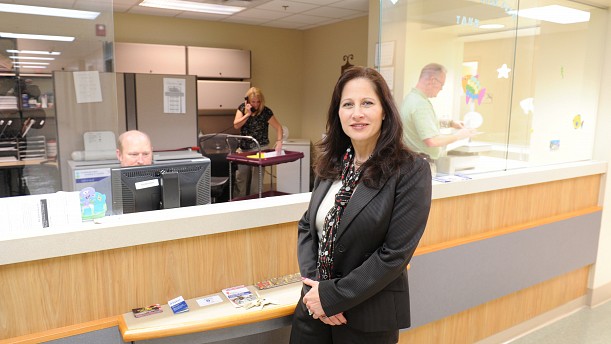

CINCINNATI—A University of Cincinnati expert on posttraumatic stress disorder (PTSD) will play a leading role in a 17-site, $9 million study that will compare the two leading evidence-based treatments for PTSD.
Kathleen Chard, PhD, will be one of three co-principal investigators for the trial, which is expected to launch later this year. She is an associate professor of clinical psychiatry in the UC Department of Psychiatry and Behavioral Neuroscience and director of the department’s PTSD division, based at the Cincinnati Department of Veterans Affairs (VA) Medical Center facility in Ft. Thomas, Ky.
The grant is sponsored by the VA’s Cooperative Studies Program, the division of the VA’s Office of Research and Development that is responsible for the planning and conduct of large multicenter clinical trials and epidemiological studies.
According to the National Institute of Mental Health (NIMH), PTSD is a type of anxiety disorder that some people get after seeing or living through a dangerous event. People who have PTSD may feel stressed or frightened even when they’re no longer in danger. Anyone can get PTSD at any age—including war veterans and survivors of physical and sexual assault, abuse, accidents, disasters and many other serious events.
Symptoms of PTSD fall into three main categories: re-experiencing the event, such as flashbacks or repeated upsetting memories; avoidance, such as feeling detached or having a lack of interest in normal activities; and hyper-arousal, such as difficult concentrating or startling easily.
Two types of treatment for PTSD have been endorsed by the Institute of Medicine, a nonprofit organization that is the health arm of the National Academy of Sciences:
• Cognitive Processing Therapy (CPT), which focuses on the patient’s thoughts and feelings, with emphasis on how traumatic experiences changed the patient’s thoughts and beliefs and how the patient’s thoughts influence current feelings and behaviors. Patients identify and challenge unhelpful thoughts through structured therapy sessions and practice assignments. (Chard is co-author of the CPT military/veteran manual and the national CPT implementation director for the Department of Veterans Affairs.)
• Prolonged Exposure (PE), which focuses on allowing the patient to work through painful memories by re-experiencing the traumatic event or events in a safe and supportive environment and engage with activities he or she has been avoiding because of the trauma. PE also emphasizes education about treatment and common reactions to trauma and breathing retraining.
“We’ve been wanting to put these two therapies head to head as a prediction of which does better in certain situations,” Chard says. “It’s our goal to do better patient matching—making sure that patients get into the therapy that fits them best. This study will help us do that.”
The two co-principal investigators in addition to Chard, both employees of the VA National Center for Posttraumatic Stress Disorder, are Paula Schnurr, PhD, deputy executive director, and Josef Ruzek, PhD, director of dissemination and training. They are faculty members at Geisel School of Medicine (Dartmouth University) and Palo Alto University, respectively.
